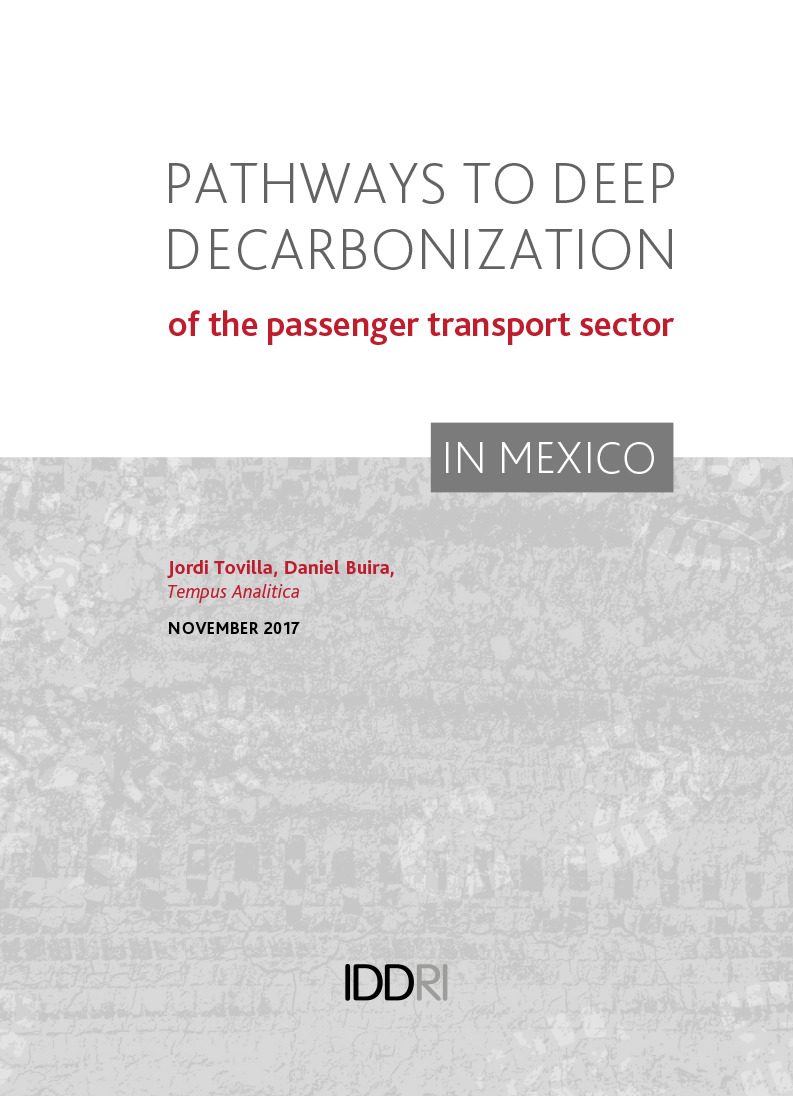Pathways to deep decarbonization of the passenger transport sector in Mexico
Current and historical patterns of uncontrolled urbanization and poor public transportation strongly encourage the use of private vehicles with an ever-lower occupancy rate in increasingly congested roads. The increasing surface of cities effectively expands the distances commuters need to travel everyday. The resulting rise in gasoline consumption has exceeded domestic refining capacity and imports account for half of total supply. The transport sector is the single largest source of GHG emissions in Mexico with a fourth of the total. Two scenarios are presented, both leading to a 50% reduction in annual CO2 emissions of the passenger transport sector by 2050 (50 MtCO2) compared to the level in 2010.
Jordi Tovilla (Tempus Analitica) Daniel Buira (Tempus Analitica)
2017
